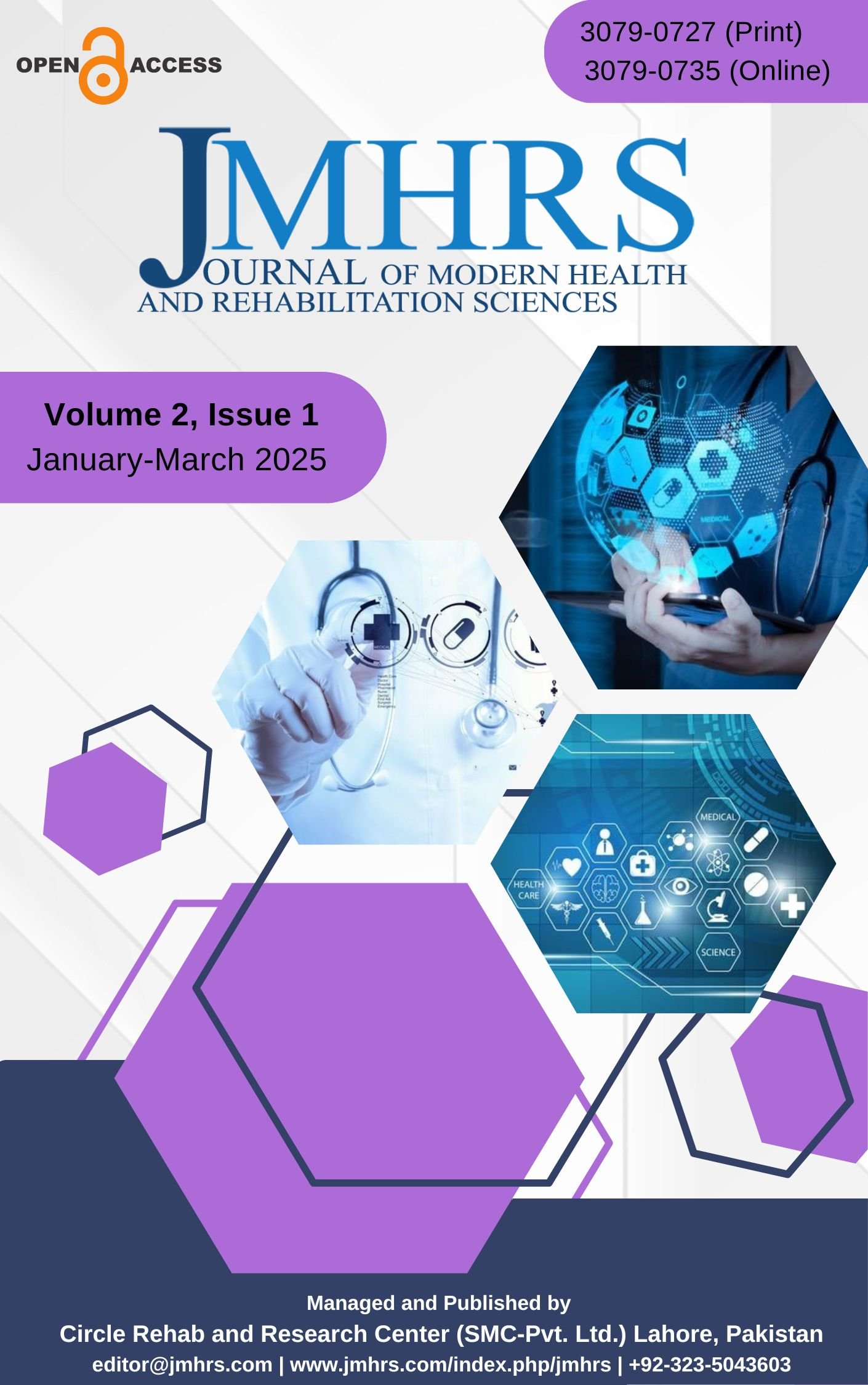Impact of Socio-Demographic Factors on the Prevalence of Generalized Anxiety Disorder Among Interns in Allied Health Sciences
Keywords:
Anxiety Disorders, Generalized Anxiety Disorder, Healthcare Personnel, Interns and Residents, Occupational Stress, Socioeconomic Factors, Psychological StressAbstract
Background: Generalized Anxiety Disorder (GAD) is a prevalent mental health condition characterized by excessive worry and physiological symptoms, significantly impacting professional performance and quality of life. Interns in Allied Health Sciences (AHS) face high psychological stress due to workload, financial concerns, job insecurity, and disrupted sleep patterns, increasing their susceptibility to GAD. Objective: To determine the prevalence of GAD among AHS interns and assess the impact of socio- demographic factors on anxiety levels. Methods: A cross-sectional study was conducted among 220 AHS interns in hospitals and clinical setups in Lahore, Pakistan. Data were collected using a structured questionnaire, including socio-demographic variables and the validated Generalized Anxiety Disorder-7 (GAD-7) scale. The severity of GAD was categorized into minimal, mild, moderate, and severe. Statistical analysis was performed using SPSS version 26, with chi-square tests applied to assess associations (p ≤ 0.05). Results: The prevalence of Generalized Anxiety Disorder among interns was 92 (41.8%), while 128 (58.2%) had no GAD. Among those affected, 18.6% experienced minimal anxiety, 39.5% mild anxiety, 33.2% moderate anxiety, and 8.6% severe anxiety. Significant associations were identified between GAD and various socio-demographic factors, including workload (p = 0.002), financial concerns (p < 0.001), job insecurity (p = 0.001), sleep deprivation (p < 0.001), accommodation (p = 0.016), and part-time work (p = 0.050). However, gender, marital status, and training duration did not show significant correlations. Conclusion: A high prevalence of Generalized Anxiety Disorder was observed among AHS interns, with workload, financial stress, and job insecurity as major contributors. Institutional strategies are needed to mitigate anxiety and enhance mental well-being in future healthcare professionals.
Keywords: Anxiety Disorders, Generalized Anxiety Disorder, Healthcare Personnel, Interns and Residents, Occupational Stress, Socioeconomic Factors, Psychological Stress.
Downloads

Downloads
Published
Issue
Section
License
Copyright (c) 2025 Mahnoor Ijaz, Gul-E-Sehar (Author)

This work is licensed under a Creative Commons Attribution-NonCommercial 4.0 International License.
Copyright ©. Authors retain copyright and grant publishing rights to Journal of Modern Health and Rehabilitation Sciences (JMHRS).
















